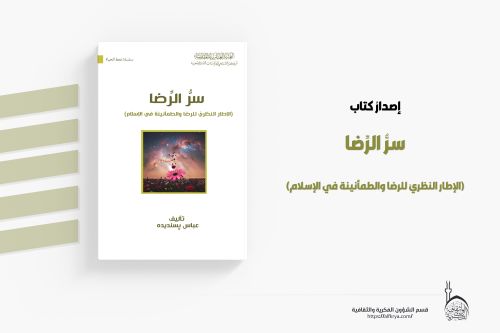

Grammar


Tenses


Present

Present Simple

Present Continuous

Present Perfect

Present Perfect Continuous


Past

Past Continuous

Past Perfect

Past Perfect Continuous

Past Simple


Future

Future Simple

Future Continuous

Future Perfect

Future Perfect Continuous

Passive and Active


Parts Of Speech


Nouns

Countable and uncountable nouns

Verbal nouns

Singular and Plural nouns

Proper nouns

Nouns gender

Nouns definition

Concrete nouns

Abstract nouns

Common nouns

Collective nouns

Definition Of Nouns


Verbs

Stative and dynamic verbs

Finite and nonfinite verbs

To be verbs

Transitive and intransitive verbs

Auxiliary verbs

Modal verbs

Regular and irregular verbs

Action verbs


Adverbs

Relative adverbs

Interrogative adverbs

Adverbs of time

Adverbs of place

Adverbs of reason

Adverbs of quantity

Adverbs of manner

Adverbs of frequency

Adverbs of affirmation


Adjectives

Quantitative adjective

Proper adjective

Possessive adjective

Numeral adjective

Interrogative adjective

Distributive adjective

Descriptive adjective

Demonstrative adjective


Pronouns

Subject pronoun

Relative pronoun

Reflexive pronoun

Reciprocal pronoun

Possessive pronoun

Personal pronoun

Interrogative pronoun

Indefinite pronoun

Emphatic pronoun

Distributive pronoun

Demonstrative pronoun


Pre Position


Preposition by function

Time preposition

Reason preposition

Possession preposition

Place preposition

Phrases preposition

Origin preposition

Measure preposition

Direction preposition

Contrast preposition

Agent preposition


Preposition by construction

Simple preposition

Phrase preposition

Double preposition

Compound preposition


Conjunctions

Subordinating conjunction

Correlative conjunction

Coordinating conjunction

Conjunctive adverbs


Interjections

Express calling interjection


Grammar Rules

Preference

Requests and offers

wishes

Be used to

Some and any

Could have done

Describing people

Giving advices

Possession

Comparative and superlative

Giving Reason

Making Suggestions

Apologizing

Forming questions

Since and for

Directions

Obligation

Adverbials

invitation

Articles

Imaginary condition

Zero conditional

First conditional

Second conditional

Third conditional

Reported speech


Linguistics

Phonetics

Phonology


Semantics


Pragmatics

Linguistics fields

Syntax

Morphology

Semantics

pragmatics

History

Writing

Grammar

Phonetics and Phonology

Semiotics


Reading Comprehension

Elementary

Intermediate

Advanced


Teaching Methods

Teaching Strategies
Consonants /v/
المؤلف:
Peter Trudgill
المصدر:
A Handbook Of Varieties Of English Phonology
الجزء والصفحة:
174-8
2024-03-06
1087
Consonants /v/
The present-tense verb-form have is normally pronounced /hæ ~ hε ~ hə ~ ə/ , i.e. without a final /v/, unless the next word begins with a vowel: Have you done it? /hε jə dΛn ət/. This has the consequence that, because of smoothing, some forms involving to have and to be are homophonous: we’re coming /wε:kΛmən/, we’ve done it /wε: dΛn ət/.
In many of the local varieties spoken in the southeast of England in the 18th and 19th centuries, prevocalic /v/ in items like village was replaced by /w/. Most reports focus on word-initial /w/ in items such as village, victuals, vegetables, vermin. It would seem than that [v] occurred only in non-prevocalic position, i.e. in items such as love, with the consequence that [w] and [v] were in complementary distribution and /w/ and /v/ were no longer distinct. Ellis (1889) describes the southeast of 19th century England as the “land of wee” and Wright (1905: 227) says that “initial and medial v has become w in mid-Buckinghamshire, Norfolk, Suffolk, Essex, Kent, east Sussex”. Wakelin (1981: 95–96) writes that the SED materials show that: “In parts of southern England, notably East Anglia and the south-east, initial and medial [v] may appear as [w], cf. V.7.19 vinegar, IV.9.4 viper (under adder), V.8.2 victuals (under food). […] The use of [w] for [v] was a well-known Cockney feature up to the last century.”
Wakelin (1984: 79) also says that “Old East Anglian and south-eastern dialect is noted for its pronunciation of initial /v/ as /w/ in, e.g., vinegar, viper; a very old feature, which was preserved in Cockney up to the last century”. The SED materials show spontaneous responses to VIII.3.2 with very with initial /w/ in Grimston, North Elmham, Ludham, Reedham, and Pulham St Mary, Norfolk. Norfolk is one of the areas in which this merger lasted longest. The merger is ‘remembered’ by the local community decades after its actual disappearance: most local people in the area over a certain age ‘know’ that village used to be pronounced willage and that very used to be pronounced werra, but discussions with older Norfolk people suggest that it was in widespread normal unselfconscious use only until the 1920s. We can assume that it died out in the southern part of the East Anglian area even earlier. The fact that modern dialect writers still use the feature is therefore highly noteworthy. For example, Michael Brindred in his local dialect column in the Norwich-based Eastern Daily Press of August 26th, 1998 writes anniversary <anniwarsary>.















 قسم الشؤون الفكرية يصدر مجموعة قصصية بعنوان (قلوب بلا مأوى)
قسم الشؤون الفكرية يصدر مجموعة قصصية بعنوان (قلوب بلا مأوى) قسم الشؤون الفكرية يصدر مجموعة قصصية بعنوان (قلوب بلا مأوى)
قسم الشؤون الفكرية يصدر مجموعة قصصية بعنوان (قلوب بلا مأوى) قسم الشؤون الفكرية يصدر كتاب (سر الرضا) ضمن سلسلة (نمط الحياة)
قسم الشؤون الفكرية يصدر كتاب (سر الرضا) ضمن سلسلة (نمط الحياة)

















